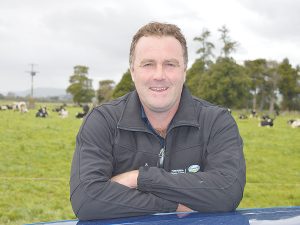
Employment spokesperson Chris Lewis, a dairy farmer from Pukeatua, was commenting Tuesday on the Government’s decision to allow another 500 international workers into Aotearoa to help out on dairy farms.
While appreciative of the announcement, Lewis said it still wouldn’t solve the sector’s labour shortages nationally and in Waikato.
One of the main problems locally, he said, was that “when you’re short-staffed it’s hard to provide a roster that’s competitive” in terms of being attractive to prospective and current staff.
Shortages put more stress on those remaining and increased the risk of burnout. “And, for the business owners, you just don’t get a break.”
The problem meant some managers and sharemilkers were bailing out. “They just can’t handle the stress,” said Lewis.
Under a new scheme, starting in July, accredited employers in the dairy sector will be able to get in more overseas workers. But that won’t be in time for the next season starting in June.
In the interim, the Government had previously approved having another 300 foreign workers in dairying under an exceptions policy. But this week’s announcement added another 500 to that number. The workers need to be paid at least $28 an hour.
Lewis expects many of the 800 approved will be particularly in demand in Waikato, Canterbury and Southland. “If Waikato wants them get in quick and beat those Southlanders.”
But, based on the 1200 or so vacancies nationally he’s seen on the books this week, Lewis expects Waikato still won’t have the labour it wants even if it gets a fair number of the 800. More vacancies would also be on the way.
“People are sick of advertising because they’ve had no-one through.”
A strong Waikato economy was good for the region but the resulting general demand for labour compounded shortages for dairying, he said.
It was important for farmers to post accurate and attractive job ads and to treat their staff well.
“Good employers always have good staff.”

In a statement, industry body DairyNZ said it was relieved at the Government’s decision to allow an extra 500 workers in through a border class exception.
Chief executive Tim Mackle said DairyNZ had been working hard to make the Government understand the huge labour pressures farmers were under.
“We made it clear to Government that the 300 dairy border class exception workers previously approved was nowhere near enough to meet the demands on-farm and reduce the current high levels of farmer stress,” said Mackle.

“We will continue to advocate for more to be allowed into New Zealand, to help address the significant staff shortage.”
DairyNZ said that, before the announcement of a total of 800 extra overseas workers, the sector was estimated to have a shortage of 4000 nationally, with record low unemployment and a prolonged border closure contributing.
“We continue to encourage Kiwis to join our sector and farmers have been taking a range of steps to make dairy farming more attractive to staff. However, in such a tight labour market the contribution international staff make to keep farms running is critical,” said Mackle.
“From here, we strongly encourage farmers who want international workers on board for calving to apply through the border exception process.”

























